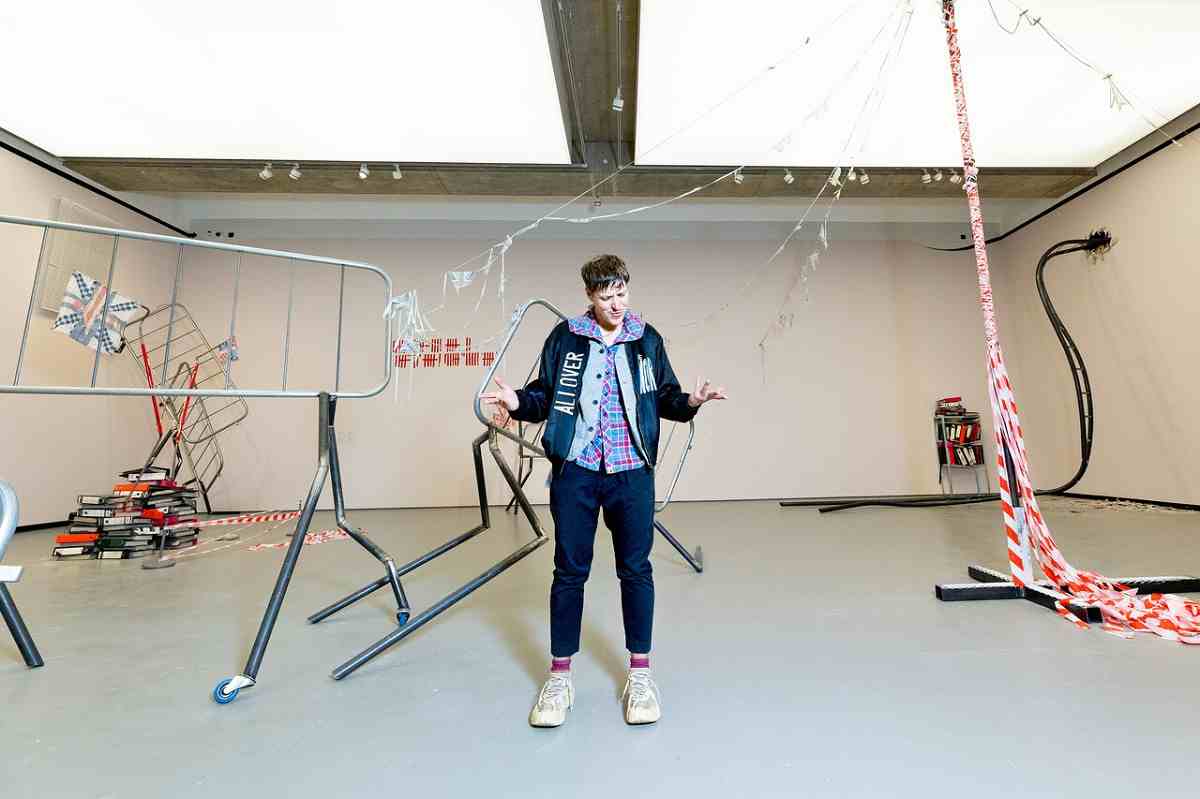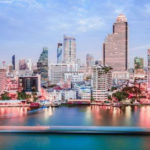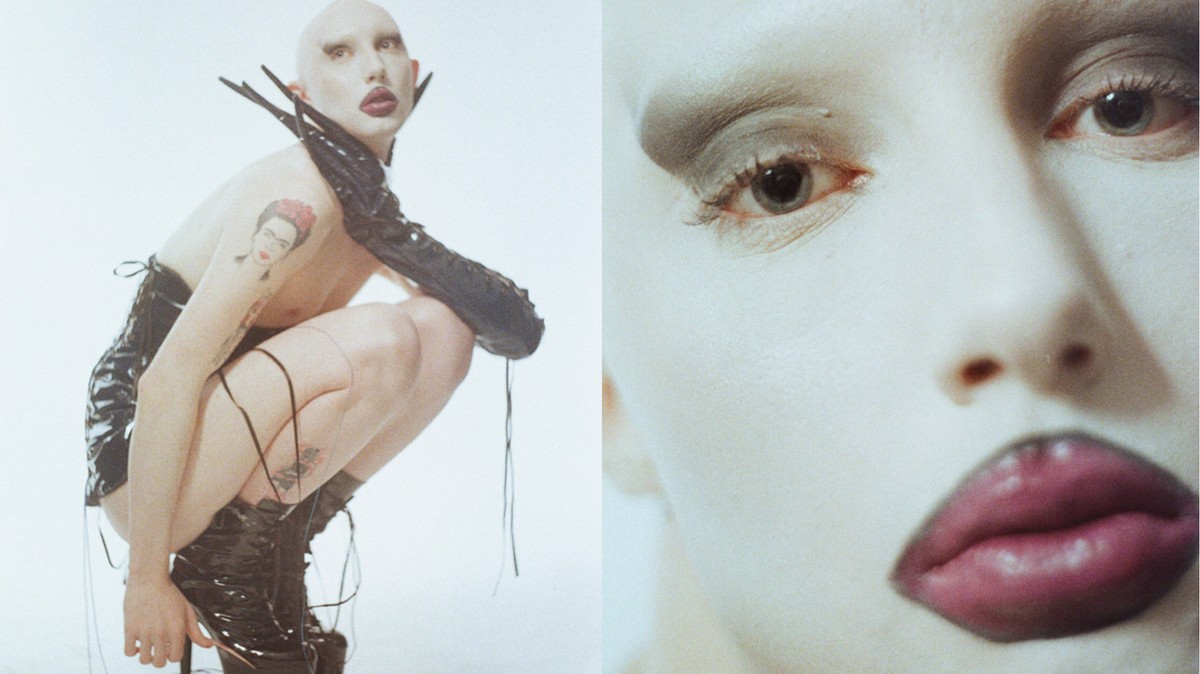Hypertransform Sculpture
2005 - Sculpture (Sculpture)
237 x 140 x 37 cm
Rudolf Polanszky
Polanszky’s sculpture is made from raw, found materials that have the patina of age. He brings together disparate material discarded by society to form aggregates. Although it is not his intention to make works of meaning the viewer endows them with poetic meanings and constructs. For Polanszky making sculpture is to conduct a meeting of multiple parties. Nevertheless a sense of history is foundational to the perception of the finished work. This sculpture, for example brings to mind not only Epstein’s and Brancusi’s bird sculptures, e.g. Doves 1914-15 and The Cock 1924, but images of ancient sea vessels, for example the mythical Argo. It has an incredible lightness as a result of its translucence, its arcing shape and its suspension above the plinth. Because of its translucence and the sitting of the sculpture at eye level, Polanszky also incorporates the spectator into the work, since if two people view it from either side they view each other through it. Trapped within the sculpture is another sculptural form, the work thus becoming a sarcophagus, an ancient burial chamber for precious objects. This sculpture is resonant with history, myth and poetry. But the sculpture does not consist solely of the plastic element but the entire construction of plinth and object. To that extent it makes reference to the work of Giacometti and Polanszky’s contemporary Franz West.
Rudolf Polanszky, who has been working since the 1980s, is a Viennese artist. His early work, influenced perhaps by Viennese Actionism, was concerned with the body and subjecting it to various unpleasant activities often invoking the unconscious or rather the non conscious. He made paintings, for example in a state between sleep and an awakened state and compared them to those he made when fully awake. He made films of himself drinking and, as a result of drunkenness, vomiting, trying to access reflexive, non cognitive actions. Rudolf Polanszky emerges from a generation of post 1960s artists that includes Dieter Roth, Valie Export and Franz West. In more recent years he has made sculpture. His sculptures contain the raw scraps of industrial materiality – iron, wood, plastic – bound in visually delicate but robustly balanced ‘plinths’, which carry aloft Plexiglas sections in part describing a circle, or horizontal sections the length of a rectangle and reminiscent of strata below the surface of the earth. The sculptures, like vessels, are sometimes filled with smaller versions of themselves, or else more fluid and visceral substances such as feathers, pigment, foam and fiberglass, ranging in form from the model to the monumental. Polanszky is little known outside Vienna although he has shown at Ancient and Modern in London and Frith Street Gallery, London. He was included in Franz West’s much praised Hamsterwheel exhibition shown at the Venice Biennale 2007 and Malmö Konsthall, Printemps de Septembre, Toulouse and Macba, Barcelona.
Colors:
Related works sharing similar palette

© » ART CENTRON
Turner Prize Winner Jesse Darling Claims the Spotlight - Artcentron Home » Turner Prize Winner Jesse Darling Claims the Spotlight ART Dec 15, 2023 Ξ Leave a comment Turner Prize Winner Jesse Darling Claims the Spotlight posted by ARTCENTRON Jesse Darling, Turner Prize Winner with Delirious at Towner Easbourne...

© » SLASH PARIS
Animals — Loevenbruck Gallery — Exhibition — Slash Paris Login Newsletter Twitter Facebook Animals — Loevenbruck Gallery — Exhibition — Slash Paris English Français Home Events Artists Venues Magazine Videos Back Animals Exhibition Mixed media Vue de l’exposition Animals, galerie Loevenbruck, Paris © Photo Fabrice Gousset, courtesy Loevenbruck, Paris Animals Ends in about 1 month: November 17, 2023 → January 20, 2024 Animals is a collective exhibition that brings together artworks from different cultures and periods, all exploring the theme of the animal figure...

© » KADIST
Cristóbal Lehyt
2016Cristóbal Lehyt has conducted thorough research on the historical and cultural complexity of the northern region of Chile where the Atacama Desert is located...

© » KADIST
Habits and customs of _______ are so different from ours that we visit them with the same sentiment that we visit exhibitions Lu Huanzhi, Ho Tzu Nyen, Li Liao, Irena Haiduk, Siniša Ilic, Eva Barto Editors: Biljana Ciric and Fayen d’Evie Design: 3-ply, Toby Tam and Biljana Ciric Risograph cover, 5 x BW digital print booklets...

© » KADIST
Nidhal Chamekh
2019Nos visages ( Our Faces ) continues Nidhal Chamekh’s research around visual souvenirs of figures of the past and the light they might shed on our contemporary era...

© » KADIST
Robert Therrien
1985In No Title (Blue Chapel) Therrien has reduced the image of a chapel to a polygon...

© » KADIST
Georgia Dispatch: Living and Making in the American South Suzanne Jackson, Yanique Norman, and Katya Tepper in conversation with Erin Jane Nelson, in collaboration with Burnaway Long before Georgia surprised the world in two recent US elections, the Peach State was a vital cultural and political force, shaping everything from food and music to queer culture and Civil Rights activism...

© » SLASH PARIS
Animals — Galerie Loevenbruck — Exposition — Slash Paris Connexion Newsletter Twitter Facebook Animals — Galerie Loevenbruck — Exposition — Slash Paris Français English Accueil Événements Artistes Lieux Magazine Vidéos Retour Animals Exposition Techniques mixtes Vue de l’exposition Animals, galerie Loevenbruck, Paris © Photo Fabrice Gousset, courtesy Loevenbruck, Paris Animals Encore environ un mois : 17 novembre 2023 → 20 janvier 2024 « Animals » est une exposition collective qui rassemble des œuvres d’art de différentes cultures et époques, toutes explorant le thème de la figure animale...

© » KADIST
Walid Raad
2009“The Lebanese wars of the past three decades affected Lebanon’s residents physically and psychologically: from the hundred thousand plus who were killed; to the two hundred thousand plus who were wounded; to the million plus who were displaced; to the even more who were psychologically traumatized...

© » KADIST
Allan deSouza
For the photographic series Rumpty Trumpty , in 1997, Allan deSouza photographed the Trump Taj Casino in Atlantic City, NJ, reprinting the images again in 2017, from digital scans of the negatives...

© » KADIST
Chadwick Rantanen
2010Telescopic Pole is an adjustable telescopic pole that extends vertically from floor to ceiling and is held up by its own internal pressure...

© » KADIST
Ahmet Ögüt
2022Monuments of the Disclosed by Ahmet Ögüt is an NFT series of digital monuments to whistleblowers...

© » KADIST
Olga Grotova
2022Our Grandmothers’ Gardens by Olga Grotova is based on the history of Soviet allotment gardens, which were small plots of land distributed amongst the families of factory workers to compensate for poor food supply in a country that was over-producing weapons...







